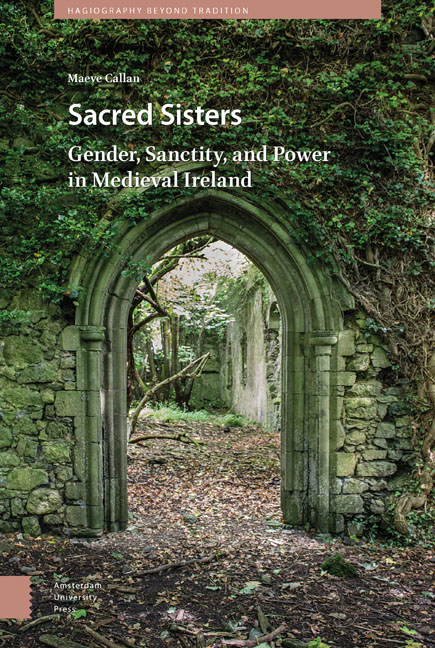Book contents
- Frontmatter
- Dedication
- Contents
- List of Figures
- Preface
- Introduction
- 1 “Founded upon the Rock Which is Christ”: What Patrick and His Promoters Reveal about Women in the Early Irish Church
- 2 “A New and Apostolic Band of Virgins Arose”: Darerca, an Exceptionally Learned Abbess
- 3 “The Safest City of Refuge”: Brigid the Bishop
- 4 “God is Always Present with Those who Exemplify Such Devotion”: Íte, Foster-Mother of the Saints of Ireland
- 5 “Do not Harass my Sisters”: Samthann, an Abbess not to be Crossed
- 6 “I Place Myself under the Protection of the Virgins all Together”: Sister Saints with Something Like a Life
- Conclusion
- Appendices
- Appendix A The Sites
- Appendix B The Sources
- Appendix C Feast Days of Early Medieval Irish Female Saints
- Appendix D Glossary
- Appendix E Pronunciation of Personal Names
- Bibliography
- Index
5 - “Do not Harass my Sisters”: Samthann, an Abbess not to be Crossed
Published online by Cambridge University Press: 24 November 2020
- Frontmatter
- Dedication
- Contents
- List of Figures
- Preface
- Introduction
- 1 “Founded upon the Rock Which is Christ”: What Patrick and His Promoters Reveal about Women in the Early Irish Church
- 2 “A New and Apostolic Band of Virgins Arose”: Darerca, an Exceptionally Learned Abbess
- 3 “The Safest City of Refuge”: Brigid the Bishop
- 4 “God is Always Present with Those who Exemplify Such Devotion”: Íte, Foster-Mother of the Saints of Ireland
- 5 “Do not Harass my Sisters”: Samthann, an Abbess not to be Crossed
- 6 “I Place Myself under the Protection of the Virgins all Together”: Sister Saints with Something Like a Life
- Conclusion
- Appendices
- Appendix A The Sites
- Appendix B The Sources
- Appendix C Feast Days of Early Medieval Irish Female Saints
- Appendix D Glossary
- Appendix E Pronunciation of Personal Names
- Bibliography
- Index
Summary
Abstract
Samthann, who lived two centuries after the first three sisters, shows the stern but wise and merciful abbess who built on her older sisters’ work. She could unleash an enormous eel on male threats to her sisters and beat greedy landowners in their dreams until they saw the error of their ways and freely donated whatever her community needed. Such strength of leadership could be the difference between a community's survival and its disappearance. She is the only eighth-century Irish saint, male or female, honored with an extant Life, and one of very few who did not found her own community. All of her sister saints with medieval Lives died in the sixth century, and all were said to have founded their own communities. Samthann's Life may date to within a generation or two of her death, and it may reveal the woman before history remade her, before centuries of devotion and the growing power of her monastery turned her into someone who could kill with a single word, as Patrick's propagandists claimed of him.
Key words: célí Dé, Cáin Adomnáin, purgatory, soul-friendship
A lustful cleric once visited Clonbroney, Samthann's monastery, and instantly fell in love with a beautiful nun. He wooed the girl, and she agreed to follow him to a nearby wood, so that they might fulfill their desire. Before he left, with a nerve and impudence befitting a determined seducer of vowed virgins, the cleric asked Samthann for her blessing for his journey. Samthann warned him, “Wherever you go, do not harass my sisters with enticing words or evil actions.” He protested his innocence, and, without the saint's blessing, set off on an adventure he would undoubtedly never forget, though far from the romantic interlude he envisioned.
When he began to cross a stream, the water level rose until it reached his belt; and then an eel of astounding size gripped his loins, where it constricted him with great force. He was exceedingly terrified at this occurrence, and returned to the virgin of God, where on bended knees he begged her forgiveness. When this was given, at once the eel fell off his loins. And instructed by this affliction, he swore never again to come to the virgins’ monastery.
- Type
- Chapter
- Information
- Sacred SistersGender, Sanctity, and Power in Medieval Ireland, pp. 135 - 156Publisher: Amsterdam University PressPrint publication year: 2019



